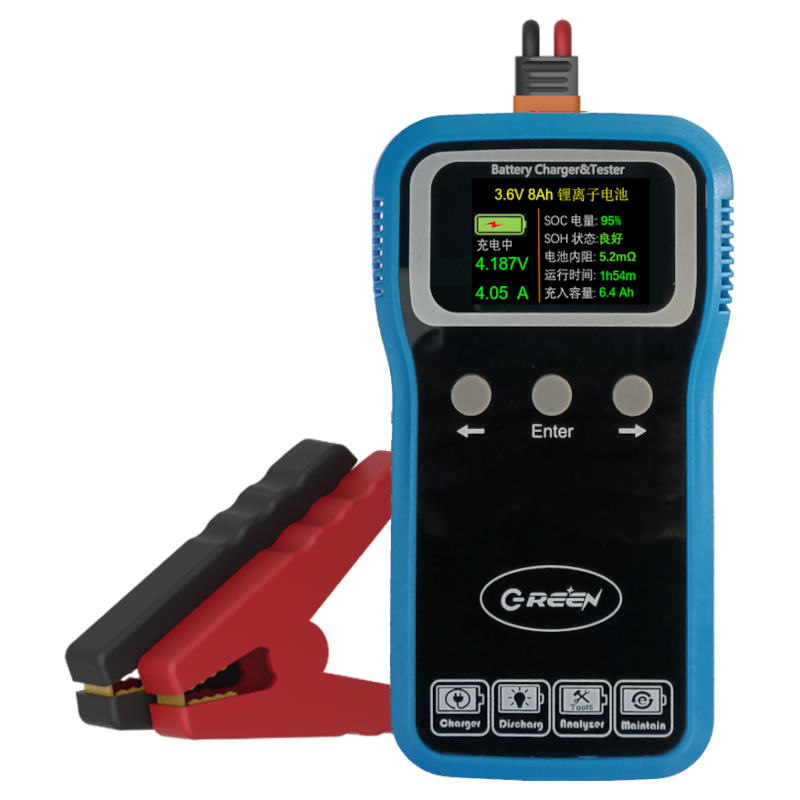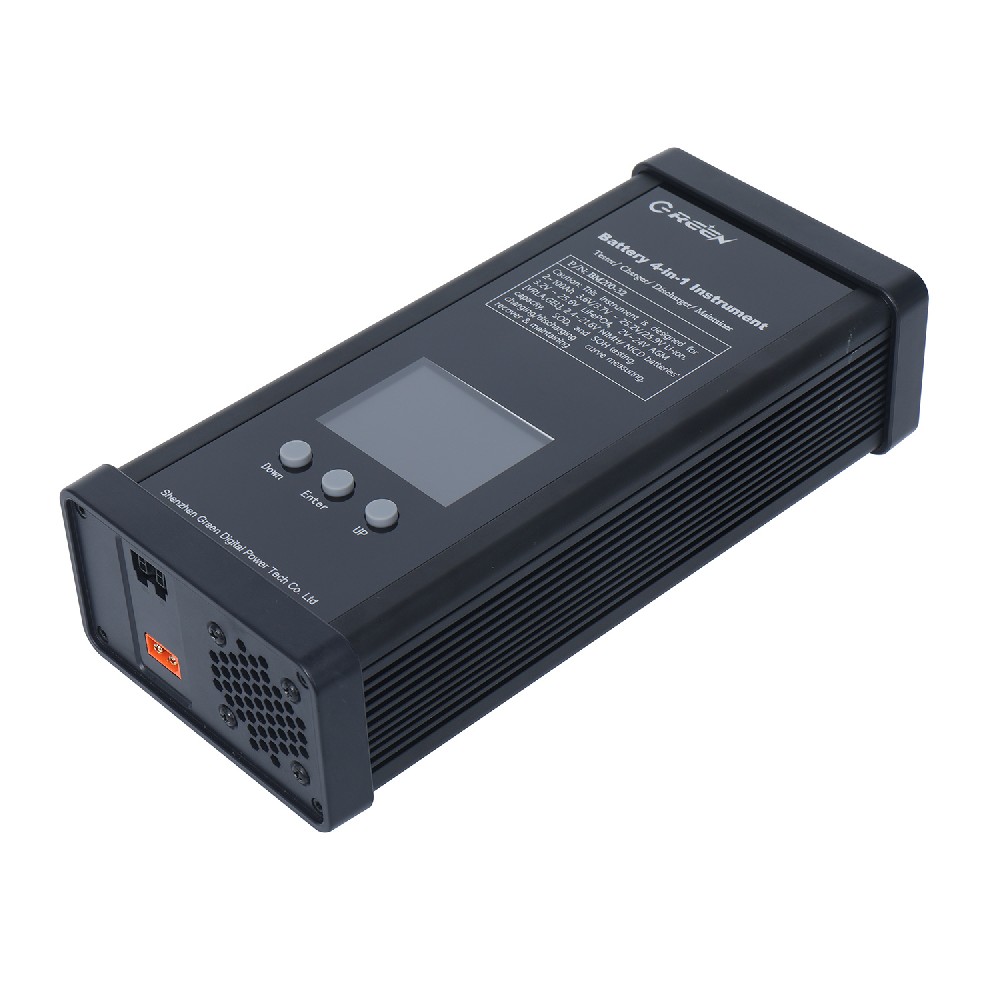The Small Battery Tester is a device specifically designed to measure and evaluate the performance of small-sized batteries. These testers typically embody characteristics such as portability, multifunctionality, and high precision, enabling users to quickly comprehend crucial battery parameters like status, capacity, and internal resistance. The Small Battery Tester finds extensive applications across various sectors, including households, automotive electronics, electronics manufacturing, scientific research, education, and more, making it an indispensable tool in modern life.
Working Principle of the Small Battery Tester
The working principle of the Small Battery Tester primarily relies on the electrochemical properties of batteries and electronic measurement technology. When a battery is connected to the tester, the tester applies a certain load to the battery, simulating the discharge process during actual use. By measuring parameters such as voltage, current, and time during the discharge process, the tester can calculate key indicators like battery capacity and internal resistance, thereby assessing the battery's performance status.
Specifically, the tester typically comprises sophisticated components within, including a precise current source, voltage measurement circuitry, a microprocessor, and a display screen. The current source supplies a constant discharge current to the battery, while the voltage measurement circuitry monitors the voltage changes across the battery terminals in real-time. The microprocessor processes the collected data, computes battery parameters like capacity and internal resistance based on predefined algorithms, and displays the results on the screen for users to view.
Core Functions
Battery Capacity Testing: By simulating the battery discharge process, it measures the output capacity under specific conditions, thereby assessing the battery's endurance.
Battery Performance Evaluation: It tests parameters like internal resistance, voltage, and current to determine the battery's performance status, including charging/discharging efficiency and stability.
Health Status Detection: By analyzing charging/discharging curves and internal resistance changes, it identifies if the battery is aged, damaged, or has other potential issues.
Application Scenarios
Battery Production: On production lines, it's used to conduct quality inspections on finished batteries, ensuring they meet standard performance requirements.
Automotive Maintenance: Detects the capacity and health of car batteries, aiding car owners in timely replacements to ensure driving safety.
Household Use: For devices powered by small batteries (e.g., remote controls, flashlights), the Small Battery Tester helps users understand the actual battery level, preventing sudden power outages.
Types & Characteristics
Portability: The Small Battery Tester is often designed for portability, facilitating easy carrying and usage.
Multifunctionality: Some models offer multiple testing functions, such as voltage testing, internal resistance testing, and capacity testing, catering to diverse user needs.
High Precision: Employing advanced testing technologies and algorithms, it ensures the accuracy and reliability of test results.
Usage Precautions
Correct Connection: Ensure proper connection between the battery and tester before testing to avoid inaccurate results or device damage due to improper connections.
Follow Instructions: Adhere to the tester's manual to prevent misoperations that could lead to equipment malfunctions or personal injuries.
Regular Calibration: To maintain test accuracy, calibrate the tester periodically.
Pricing & Purchase Advice
Prices for Small Battery Testers vary based on brand, model, and features, ranging from tens to hundreds of dollars. When purchasing, consider your actual needs and budget. Opt for reputable brands and official channels to ensure product quality and after-sales service.
In conclusion, the Small Battery Tester is a practical tool for battery testing, boasting diverse functions and widespread applications. When selecting and using one, pay attention to the above points to ensure accurate test results and proper device operation.




